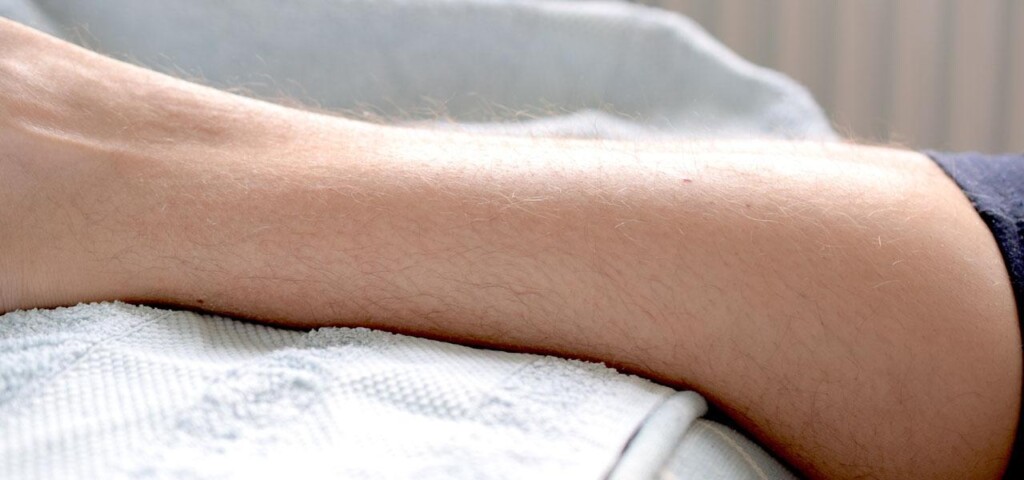Hirsutism – although the word sounds like a disease, it is not a disease at all. Excessive hair is a symptom of various diseases. It is estimated that 35% of women struggle with the problem of excessive hair. Find out about this occurrence, the causes of it, and ways to treat excessive hair.
Hirsutism – what is it?
Excessive hair in women – this is the simplest answer for this question. Due to the fact that this ailment is most often caused by hormonal disorders, hirsutism in teenagers, excessive hair during pregnancy or hirsutism during the menopause are frequent phenomena.
Women affected by this condition have male-type hair on their bodies, i.e. excessive hair in areas typical for men. The emerging hair is usually dark and stiff. Excessive hair can take many forms, from an invisible fluff on the face, to excessive hair on various parts of the body. The most common symptoms of hirsutism in women are:
- nipple hair,
- chest hair,
- excessive facial hair,
- hair on the upper lip,
- back hair,
- excessive hair in the vulva area,
- acne,
- abdominal hair,
- hair on the inside of the thighs,
- seborrhea,
- lower tone of voice,
- increase in muscle mass,
- clitoral enlargement.
- hair loss or alopecia (so-called bends).
The causes of hirsutism
The most common cause of hirsutism are increased levels of male sex hormones – the so-called androgens. Excessive hair during a pregnancy may be associated with a hormonal imbalance, which is quite common for women during this period.

On the other hand, excessive hair growth in women during menopause may result from reduced production of oestrogens and progesterone, manifesting itself not only in excessive hair growth, but also in hair loss or even male pattern baldness (bends). Other causes of excessive hair growth and the overproduction of androgens in women are:
- Polycystic ovary syndrome,
- cancers (e.g. ovarian tumor, kidney cancer, thyroid cancer),
- Cushing’s syndrome,
- insulin resistance,
- congenital adrenal hyperplasia,
- Hypothyroidism,
- anorexia,
- genetic predispositions,
- overweight, obesity,
- prolonged stress, excessive exercise – increasing the amount of prolactin in the body,
- side effects of certain medications (e.g. Minoxidil, medications containing corticosteroids, fluoxetine, danazol, anabolic steroids).
The diagnosis of hirsutism
When diagnosing hirsutism, doctors use the so-called Ferriman-Gallway scale. Its use is based on the visual assessment of body parts whose hair is dependent on the level of androgens in the body and assigning a score to each of them. If the sum of the points exceed 6, the patient is considered to be suffering from hirsutism. In order to determine the cause of excessive hair in women, it is necessary to consult a doctor and perform the necessary hormonal tests.
Hirsutism – treatment
The treatment of hirsutism can vary greatly. It may include medication, surgery, dietary change, or cosmetic intervention. The method of treating excessive hair should be selected by a doctor, based on the diagnosed cause of excessive hair. The methods for excessive hairiness include:
- taking oral contraceptive pills,
- therapy with glucocorticoids or anti-androgens,
- changing medications,
- use of a special diet,
- topical creams.
Ways to treat excessive hair
Despite treating the disease, it cannot be expected to disappear by itself. Epilation is necessary to improve the appearance and well-being of a woman. There are several methods of removing excessive hair, the most popular of which are:
- hormonal treatment,
- laser hair removal,
- shaving,
- removal with tweezers,
- brightening,
- epilation with wax, cream or epilator.
During the process of removing excessive hair, laser therapy is the most recommended due to the long-lasting results.
At a time when a model of a perfectly smooth female body is promoted, excessive hair can be a significant problem. However, it is worth focusing on searching for the causes of excessive hair, in order to be able to implement an appropriate treatment as soon as possible and inhibit the formation of new hair.





